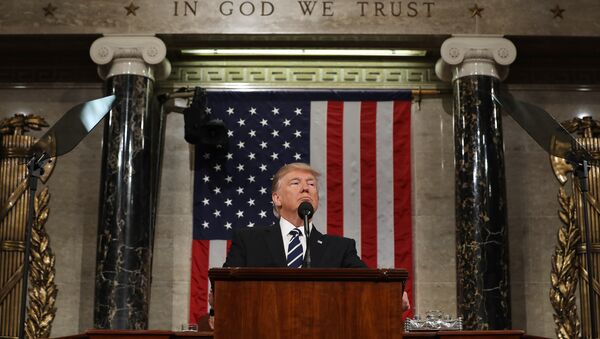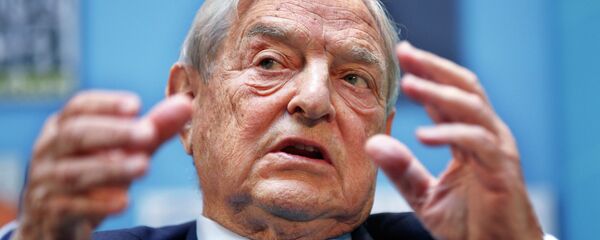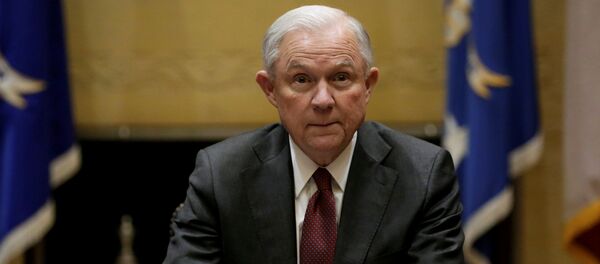That's all too predictable, when a reality TV star becomes president. When "post-truth" pseudo and/or non-events on screen 24/7 make a mockery of "reality." When the screen determines the perception of truth; if an "event" is not on show, it never happened.
The "post-truth" battle happens – where else – on a vortex of digital screens. And that's why US corporate media is freaking out. Because now there are no limits to how much it can suppress/repress/digress; what ideas are "appropriate" to be discussed; and what taboos cannot be broken, as debating the pernicious effects of neoliberalism, globalism or the industrial-military-intelligence-security complex.
And what a pity that the neo-Gibbon who could track this Decline and Fall to perfection – in fact did it, decades in advance, died 10 years ago, on March 6, 2007.
What to do after the orgy?
Since 1970, when he published The Consumer Society, the West's Deconstructor-in-Chief Jean Baudrillard had been nothing but consistent. After he identified marketing as the supreme ideology and shopping as the new moral standard/modern concept of happiness, we have come to understand ourselves primarily as reified prisoners in The System of Objects (another one of his classics), duly alienated by a non-stop demented deluge of merchandise.
He was like a drunken Nietzsche figuring out the death of God – all over again. Our only way forward was to "simulate" non-stop, to repeat every instance of "liberation" over and over again, a pallid, vacuous redundancy empty of meaning. T. S. Eliot's Hollow Men marching to a Kraftwerk beat.
Then, when vacuous neo-Hegelians announced the "end of history" after the wrap-up of the USSR, heralding the Forever Rule of Western liberal democracy, he smashed the dream as a mere "illusion of the end."
Across the go-go 1980s, everyone, from the incipient anti-globalization Left to slightly anarchist alter-globalizers, from soft John Stuart Mill progressives to dejected neo-Marxists had to resort to their portable Baudrillard to understand the tentacles of the ego-driven, ego-corroded consumer medusa, spreading a toxic virus that kills any possibility of empathy and communitarian spirit.
From David Cronenberg's Videodrome to the Matrix trilogy, and all the way to Westworld, here's to our Baudrillardian world under complete control, simultaneously transparent (everything is so glitteringly visible) and totally opaque (everything that matters is veiled), where what's on show is never what it seems (or, to quote Twin Peaks, a totally Baudrillard series, "the owls are not what they seem").
All aboard the total simulacrum
On the 1991 Gulf War, he wrote it never happened: no battles; no dead bodies; "asexual, chirurgical"; a "no-war"; just videogame-style abstract scenes (it would have been another story had he had access to "highway of death" footage, the US Army engaged in target practice on thousands of fleeing, unarmed Iraqi soldiers).
On 9/11, he wrote a landmark essay, The Spirit of Terrorism (which I read, startled, in Peshawar) not justifying it, but demonstrating how maximum power had to eventually elicit maximum destructive, although asymmetrical, counter-power. 9/11 was the ultimate Total Screen event.
He would have analyzed how Trump went over virtually the whole Beltway establishment, corporate media included, to get elected, using his trademark version of Total Screen. He would have seen that Trump is far from an American Macbeth sowing Hobbesian chaos. And he would have reveled in a vicious sociopolitical American war played in real time on the Total Screen.
What to do after the orgy? Revel in the Baudrillard index, put together by the International Journal of Baudrillard Studies (IJBS), and welcome to the Total Simulacrum Trump era.
The views expressed in this article are solely those of the author and do not necessarily reflect the official position of Sputnik.







